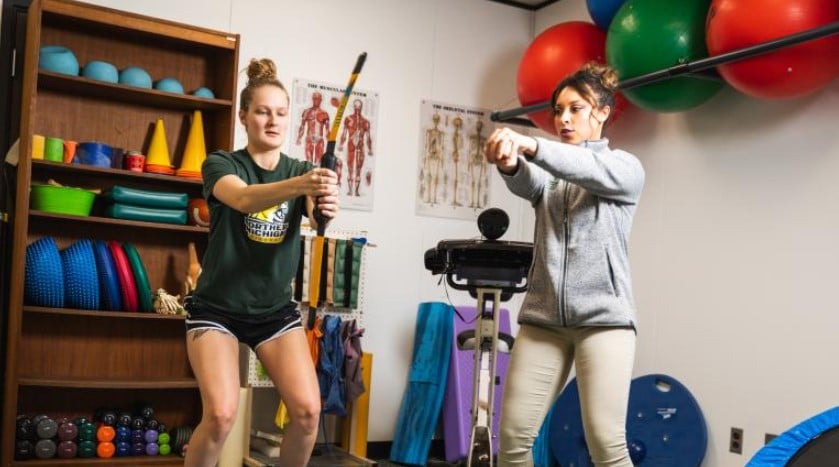MSU Researchers Urge Young Athletes to Cross-Train for Long-Term Health and Performance

Young athletes who specialize in just one sport may be putting themselves at greater risk for serious injuries and long-term health issues, according to new research from Michigan State University.
 The study, led by Dr. Nathan Fitton and Dr. Jared Lutsic, reveals a direct link between early sport specialization and higher injury rates—particularly injuries requiring surgery.
The study, led by Dr. Nathan Fitton and Dr. Jared Lutsic, reveals a direct link between early sport specialization and higher injury rates—particularly injuries requiring surgery.
“We expected to learn that highly specialized athletes would have higher injury rates,” said Fitton. “What’s alarming is a statistically significant increase in surgical procedures after an injury. This was true for male and female athletes.”
Researchers surveyed NCAA Division I, II, and III athletes about their sports history and injury experiences. The data showed that athletes who specialized in one sport throughout high school were more likely to suffer injuries—and more likely to reinjure themselves in college. Lutsic added:
“Parents, physicians and coaches should consider this when advising student athletes.”
Fitton emphasized that cross-training doesn’t mean giving up a primary sport.
“Athletes can still be very committed to a single sport and reduce their risk of injury by playing just one other sport for three months,” he said. “Cross-training is like rotating the tires on your car. You’ll get longer use and better performance.”
Activities like swimming, dance, or even theater can give young athletes a much-needed physical and mental break, while still offering new challenges. The key is diversifying movement to allow the body to recover and develop holistically.
“There are lifelong implications for youth sports injuries,” Fitton warned. “We’re seeing arthritis and the need for additional surgeries far earlier than expected.”
Their findings, published in the Clinical Journal of Sport Medicine, highlight the importance of cross-training for not just athletic success, but lifelong well-being. Check out the full article here!
![HR Logo [Recovered]_Full Color Vertical-1](https://blog.healthyroster.com/hs-fs/hubfs/HR%20Logo%20%5BRecovered%5D_Full%20Color%20Vertical-1.png?width=199&height=178&name=HR%20Logo%20%5BRecovered%5D_Full%20Color%20Vertical-1.png)
 By
By


